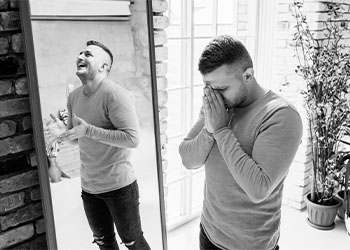Mental Health and Criminal Defense
March 28, 2023
 Mental health issues affect 1 in 5 Americans. When mental health plays a role in criminal cases, matters can become quite complex. That is why getting the right legal counsel, no matter your particular situation, is critical.
Mental health issues affect 1 in 5 Americans. When mental health plays a role in criminal cases, matters can become quite complex. That is why getting the right legal counsel, no matter your particular situation, is critical.
Attorney Ryan Roth strongly believes in protecting the rights of individuals with mental health disorders during legal proceedings in Modesto and anywhere else in California. As a criminal defense attorney, he proudly serves clients in Stockton, Manteca, Merced, and throughout the state.
Common Mental Health Disorders
While there are several mental health issues affecting people in America, the following stand out as prevalent:
Anxiety Issues
These issues involve conditions characterized by excessive worry or fear about everyday situations. Examples include generalized anxiety disorder, panic disorder, and social anxiety disorder.
Mood Conditions
These include conditions characterized by changes in mood, such as depression or bipolar disorder.
Personality Conditions
Personality conditions are characterized by unhealthy behavior, thought, and emotional patterns. Examples include borderline personality disorder and narcissistic personality disorder.
Psychotic Disorders
These conditions include disorders characterized by losing touch with reality, such as schizophrenia.
Eating Disorders
Eating disorders are a group of disorders characterized by abnormal eating behaviors and thoughts, such as anorexia nervosa, bulimia nervosa, and binge-eating disorder.
Substance Abuse Conditions
These conditions include those characterized by addiction to drugs or alcohol.
Obsessive-Compulsive Disorder (OCD)
Repetitive, intrusive thoughts and compulsive behaviors characterize this disorder.
Post-Traumatic Stress Disorder (PTSD)
PTSD can develop after a person experiences or witnesses a traumatic event, such as a natural disaster, combat, or assault.
Mental Health as a Defense in California
In California, mental health can be used as a criminal defense in certain cases. The defense is typically called an “insanity defense,” governed by California Penal Code section 1026.
To use the insanity defense in California, the defendant must demonstrate that they had a mental health disorder at the time of the crime. As a result, they either did not understand the nature of their act or could not distinguish between right and wrong. This standard is commonly known as the M’Naghten rule.
Please note that the criminal responsibility mental health defense is based on the idea that a defendant’s mental health condition at the time of the crime prevented them from being fully responsible for their actions. This defense is also known as the “diminished capacity” or the “partial responsibility” defense.
In some cases, the defense may also be used to argue that the defendant’s mental illness should be taken into account during sentencing, even if they are found guilty of the crime. This consideration might result in a more lenient sentence or a recommendation for treatment rather than imprisonment.
Proving a Mental Health Claim
To prove a mental health defense in California, the defense must establish that the defendant had a mental disease or defect at the time of the crime that prevented them from understanding the nature of their actions or distinguishing right from wrong.
To support this defense, the defendant’s attorney may present evidence from mental health professionals, such as psychiatrists or psychologists, who have evaluated the defendant and diagnosed them with a mental illness. This evidence may include medical records, witness testimony, and expert opinions about the defendant’s mental state at the time of the crime.
The prosecution may also present their own evidence, such as witness testimony and expert opinions, to refute the defendant’s claim of mental illness or to argue that the defendant was still capable of understanding the nature of their actions and distinguishing right from wrong.
Sentencing Rights of Prisoners With Mental Health Disorders
If the defendant is found not guilty by reason of insanity, they may be committed to a mental health facility for treatment until they are deemed no longer a danger to themselves or others. The length of commitment will depend on the individual case and the recommendation of mental health professionals.
Please keep in mind that prisoners with mental health disorders have the same sentencing rights as other prisoners under the law. However, their mental health condition may be considered during sentencing and throughout their time in prison.
For example, the prisoner may receive mental health services and accommodations, such as access to psychiatric medications, therapy, or counseling. Additionally, certain laws and regulations protect prisoners with mental health disorders and ensure they receive appropriate medical care and treatment. For example, the Eighth Amendment to the U.S. Constitution prohibits cruel and unusual punishment, which includes denying prisoners necessary medical care.
Turn to Attorney Ryan Roth for Defense
Don’t face complex mental health issues on your own. At Roth Legal, A Professional Law Corporation, Attorney Ryan Roth is ready to aggressively and compassionately uphold your rights every step of the way. Set up a consultation today.
